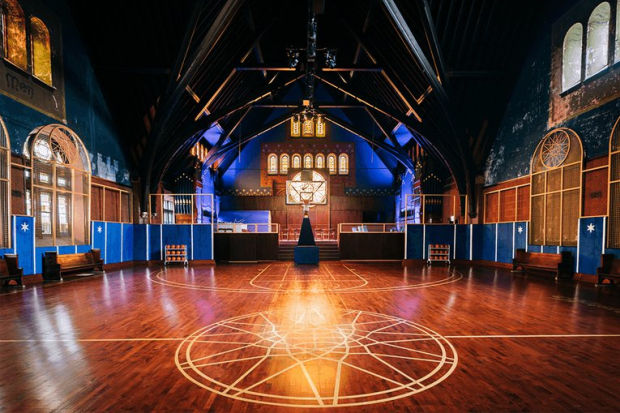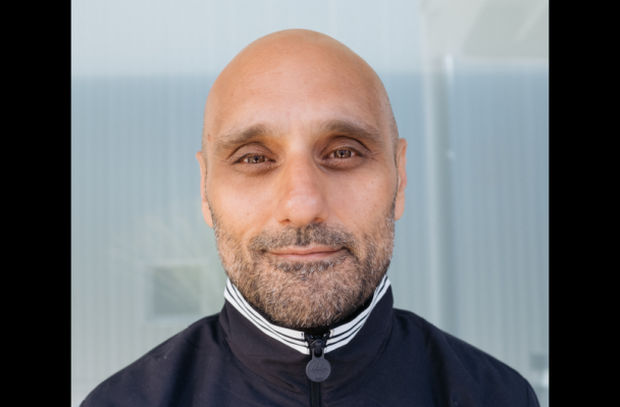Hungry Man’s Amir Farhang’s short film 'The Persian' was just accepted into LA International Shorts - an Oscar and BAFTA qualifying festival. Hungry Man talks to him about his work, growing up in America, and what inspires him.
Q> Where did you grown up and what kind of childhood did you have?
Amir Farhang> I grew up in Tucson, AZ, the son of Iranian immigrants. First and MTV generation. My dad owned a country western saloon and honky tonk and put on a cowboy hat and boots and went to work every night dressed like a cowboy. I learned how to be an American through a self-curated pop culture experience that consisted of the NBA, Spike Lee, Merle Haggard, and Eazy-E. And a little ghormeh sabzi.
Q> Your recent short film 'The Persian' essentially explores cultural and racial ignorance - talk about the making of this film and why you approached the subject matter in this way?
Amir> I grew up in a red state. I’ve had to explain where I came from and the differences between Arabs and Persians my whole life. Islamophobia as we know it isn’t a new construct, as soon as the Ayatollah stormed the US Embassy and took 52 hostages in 1979, every person America with brown skin and a beard had to be ready to explain themselves. The racial divide in America is real. Complicated, but real. It didn’t happen overnight. It’s always been there. I wanted to make a film that depicted this great nation as teachable but still very much stuck in a past we try to deny still exists.
Q> When it comes to writing and directing what inspires you most, do you draw from true experience as much as possible, and how has living in America affected that?
Amir> I was born in America, but I’m not necessarily American if that makes sense. It’s obviously affected everything I do. As a perpetual outsider, I’m often caught observing and recording behavior to be used for material later. I can’t draw from every experience personally, but it's important to remember how people behave in certain situations and what you show rather than tell that makes it more impactful.
Q> Your recent Nike work blends commercials and documentary together, what do you enjoy most about this style of work?
Amir> Not just commercials — I brought some 90’s hip-hip music video concepts to the table on that one. I don’t like to think of things as commercials all the time. I love when you get an opportunity to take a genre and attempt to bend towards a different approach or blend a variety of approaches together to create something that feels unique. There’s an electricity and vibrancy that reverberates when you layer things with nuances that maybe only you notice, but I think those are the things that make them come alive.
Q> What work or brands out there do you find most inspiring at the moment?
Amir> The NY Times, for one. The irony isn’t lost on me that a campaign dedicated to the notion of “Truth” was invented by an advertising agency. But the best ideas usually do that. And agencies like Droga5 and W+K set the standard for raising the bar and guiding our light. Maybe the one campaign I’m most jealous of is the Millicent Shelton-directed Old Spice work with Deon Cole from Black-ish. It’s crazy but somehow grounded at the same time.
Q> You also recently won 2 pencils at the D&ADs for you Amex Jersey Assurance campaign - what do you think made that campaign stand out?
Amir> Sometimes it’s all about the idea. They solved a real business problem. People are afraid to buy their favorite players jerseys in the modern era where superstars don’t play their whole careers with one team. Now they don’t have to be. What a powerful message to a consumer from a brand that says, we don’t want you to waste your money, we got your back. Literally. Plus, I got to work with my brother who lead the effort from the agency. Hi, Omid.
Q> Nike's 'The Church of the Epiphany' just won the 2019 Grand Prix for Industry Craft at Cannes Lions. It's an installation not a film - tell me about that project.
Amir> I like to think of that as a conceptual art installation and experience. It solved a problem but also told a story. Isn’t that what directing is? The challenge was to reignite the passion for the game in the city of Chicago, where the gun violence epidemic has left a generation too afraid to ball outside. The more I thought about it, the more I came to the notion that there was a loss of faith reverberating throughout — not just in the game, but on a spiritual level as well. The notion of taking an abandoned Church and converting into a basketball Mecca seemed like the best way to restore that belief. I wondered what a backboard with stained glass would look like and it all just flowed from there. I know there isn’t a film involved, but so many components of filmmaking were involved in developing the idea. Inventing a new space. Creating a room that dramatically makes you feel something. I wanted it to feel like it could be the set of a music video or the opening of an abstract short film.
 Read more about Amir's work on the campaign here.
Read more about Amir's work on the campaign here.
Q> What's on the horizon for you?
The Persian was just accepted into the LA International Shorts Awards, an Oscar and BAFTA qualifier. I’m looking forward to the screening and the Q&A with Ali, the lead actor who honestly deserves all the credit. In the meantime, it’s the never-ending pursuit of the next thing. Doing some work for Amazon with some pro athletes which I can’t quite disclose and I just completed a draft of a pilot called 'Iranian Cowboy,' which is inspired by the life of my dad. I’m working on it with my brother as well. Oh, and you might see 'The Persian 2' if the stars align.
















